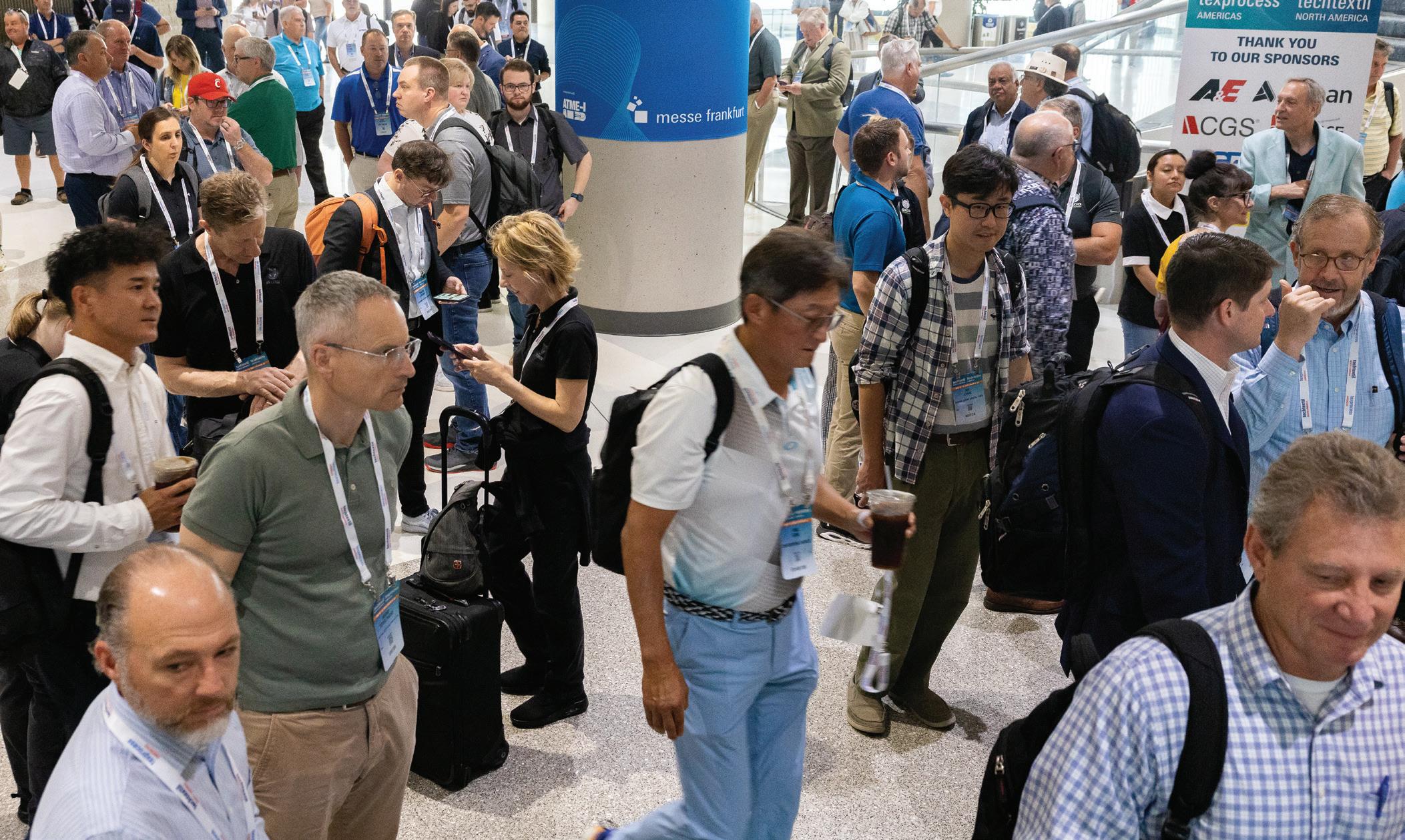
2 minute read
Welcome to the future of fibers
At Fiberpartner we provide fiber in many forms and shapes. We support a broad variety of industries, and we are happy to help whether you are looking for traditional polyester, the newest plant-based technology, or something in between.
Fiberpartner is a Danish advisor and supplier of textiles including PrimaLoft®Bio™. We understand the urgent need to transform polyester production and consumption for a more sustainable future.
We recently added PolyPlant® – a new innovative fiber that looks, feels, and acts like polyester, while not sharing its impact on the environment.
Feel free to contact us or our dedicated partners.
BAT) Polymer BREF and ZDHC MMCF guidelines, above and beyond local regulations. We have also submitted to annual assessments by the Sustainable Apparel Coalition and other ESG reviews.
We also look for independent, thirdparty certifications to confirm our sustainable production and approaches satisfy international requirements. For example, we look to improve the quality of our VSF and in turn the yarns, by adhering to standards that include OEKO-TEX®, FKT, and OK biodegradability labels.
Adopting clean manufacturing processes is a key pillar of our APR2030 strategy. Our efforts include capturing and re-using chemicals and chemical by-products, reducing and eventually eliminating the use of hazardous substances in our production processes, treating and recycling wastewater, practicing proper waste management, and implementing air pollution control methods.
Tel. +45 79 44 77 22 cation is the sarong, a traditional men's lower body dress which is made from cellulose fibers.

IFJ: What are the key trends in consumer demand and the growth trajectory of the Indonesian as well as global apparels market in context of cellulose fiber usage?

Our efforts and processes comply with local regulations. They also align with international and industry standards, guidelines, and best practices, including World Health Organization guidelines, the Zero Discharge of Hazardous Chemicals Man-made Cellulosic Fibres (MMCF) guidelines. In 2022, we contracted an independent third party to assure our chemical recovery data ahead of new requirements coming into effect.
IFJ: Please share details on APR’s CSR activities?
TKS: In alliance with our main supplier, our sister company APRIL, we are also looking to eradicate extreme poverty within a 50-km radius of our operations. We are also looking to promote inclusive prosperity and gender equality, through livelihood initiatives aimed at women and young people, and better access to maternal health, integrated childhood development and nutrition programmes.
IFJ: What are the benefits of wearing a cellulose fiber garment vis-à-vis clothing made from either cotton or polyester fiber?
TKS: When buying clothing, everyone thinks of look, feel and comfort. The biggest advantage of cellulosic fiber clothing is that it drapes and looks well. The feel is also good and, when considering comfort, it has very good moisture management properties. It is also bio-degradable. All these attributes make cellulosic fiber a very reasonable choice for consumers. Cellulose fiber consumption in Indonesia is very high at around 20-25 percent of all fibers because Indonesia does not produce cotton. For example, one appli-
TKS: Consumers have now more disposable incomes and their lifestyles too have changed. Consumers now aspire for better quality apparels and also prefer more comfortable clothing. This is driving growth of cellulose fiber apparels. The growth projections of our group are matching the actual growth of demand for cellulose fibers worldwide. As of now, we expect cellulose fibers to grow at 6-7 percent annually.
IFJ: Please share details of your presence in the Indonesian domestic and export markets?
TKS: About 45 percent of our fiber production is sold in the domestic Indonesian market and the rest is earmarked for exports. We are now exporting to more than 16 countries with our main export markets being Turkey, Pakistan, Bangladesh, Vietnam etc.
Arun Rao started his career in the textile industry and has worked across the segments of spinning and weaving production. He forayed into the sales function, beginning with selling branded innerwear and graduated to selling clothing of wellknown brands. He then joined Fibre2fashion, a B2B textile website, as News Editor for seven years. Recently, he launched Taurus Communications, a PR & advertising agency focused on the textile industry value chain. With a love for journalism, he freelances for renowned textile magazines, along with managing the agency. He is the India foreign correspondent to the IFJ














